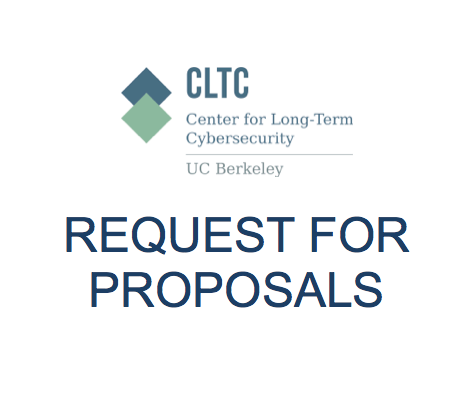The Center for Long-Term Cybersecurity (CLTC) has issued its fourth annual Request for Proposals (RFP), through which UC Berkeley-affiliated researchers can apply for research funding.
“CLTC believes that a transformative cybersecurity research program should not only address the most interesting and complex challenges of today’s socio-technical security environment, but also grapple with the broader challenges of the next decade’s environment,” the RFP states. “In this fourth annual Request for Proposals (RFP), we will continue to fund research on a heterodox set of security issues,and continue to try to draw in new researchers, including those who have not previously worked in cybersecurity-related areas.”
CLTC encourages the submission of proposals from cross-disciplinary teams, and will prioritize projects with the “potential to make a meaningful, longer term impact on cybersecurity issues and outcomes through technologies, actions, policies, behaviors, markets, etc.” Scholars may apply for funding for basic and applied research, but also may apply funds toward academic course design, policy projects, and “purposeful convenings.”
Grants will be given in two categories: Seed Grants, generally $15,000 and below, could fund an exploratory study, a small pilot, a PhD dissertation project, or other means of ‘prospecting’ a problem area. Discrete Project Grants of up to $100,000 will be allocated to fund “projects that have defined boundaries with clear outcomes and impact potential.”
PIs applying for CLTC grants must have an active UC Berkeley research affiliation, and must be enrolled in or have completed a graduate degree. The Center will consider proposals in all domains relevant to cybersecurity, but projects are particularly welcome that relate to one of four key priority areas: improving the cyber talent pipeline, exploring the long-term implications of artificial intelligence and machine learning, examining cybersecurity regulatory and governance institutions, and addressing the challenges facing individuals and organizations that face amplified vulnerabilities online.
CLTC is also using the grant funding process to forge connections with outside institutions. “CLTC encourages collaboration with outside institutions—academic, commercial, and otherwise—as befits the research program,” the RFP explains. “We also encourage (and will, on request, enthusiastically facilitate) contact with policy institutions, think tanks, agencies, firms, governments, and other means of practical dissemination of research results. We will look favorably on research proposals and budget requests that are designed to facilitate those connections.”
Learn more about CLTC’s Fall 2018 Request for Proposals

